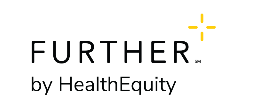


Flexible Spending Accounts & Health Savings Accounts

The district's Flexible Spending Accounts and Health Savings Accounts are offered through Further. These accounts are available for employees who work at least 5 hours per week.
Customer Support: 800-859-2144
Flexible Spending Account (FSA) Overview
The medical Flexible Spending Account (FSA) is available to employees enrolled in the PPO or HMO plans or not enrolled in the medical plans.
- An FSA allows you to put aside money tax-free that can be used for qualified medical expenses
- Since your taxable income is decreased by your contributions, you will pay less in taxes
- You can use your FSA funds at any time in full - even if it's the beginning of the year
- If you do not use the funds in your account by the end of the year, you will use it*
- *The district does allow you to carry over up to $570 a year for the following plan year
Dependent Care Flexible Spending Account (DCFSA) Overview
Dependent Care Flexible Spending Account (DCFSA) allows you to contribute pre-tax dollars to be used for qualified dependent care. A qualifying dependent may be a child under age 13, a disabled spouse, or an older parent in eldercare and can be used for services such as a daycare, preschool and before or after school programs.
The Dependent Care FSA is available to all employees who work at least 5 hours per week, regardless of medical plan. DCFSA does not impact your HSA eligibility.
2023 FSA Limits:
- Medical FSA: $2,850
- Dependent Care FSA: $5,000 per household or $2,500 if married, filing separately
Health Savings Account (HSA) Overview
The Health Savings Account (HSA) is ONLY available to employees enrolled in CDHP. An HSA is an individually owned, portable, tax-advantaged account that only eligible individuals may establish. An HSA is exclusively for paying qualified medical expenses.
- You own the account
- There is no "use it or lose it" rules - you keep the funds in your account if you leave the district or change plans
- Balances remaining in your account at year end roll over to the following year
- Accounts can earn interest and be invested (over a minimum balance)
- You will only have access to the amount that is in your account at the time of a claim - but you can save your receipt and repay yourself with funds contributed later in the year
To be an eligible individual and qualify for an HSA you:
- Must be enrolled in an HSA-compatible High Deductible Health Plan
- May not have other types of insurance with first-dollar medical coverage
- May not be claimed as a dependent on another person's tax return
- May not be enrolled in Medicare
- An individual can be Medicare-eligible and have an HSA. However, once enrolled in Medicare, contributions to the HSA account must stop. The individual can keep any funds in the account prior to enrolling in Medicare and use those funds to pay for qualified medical expenses tax-free.
2023 HSA Limits:
- $3,850 for single
- $7,750 for family